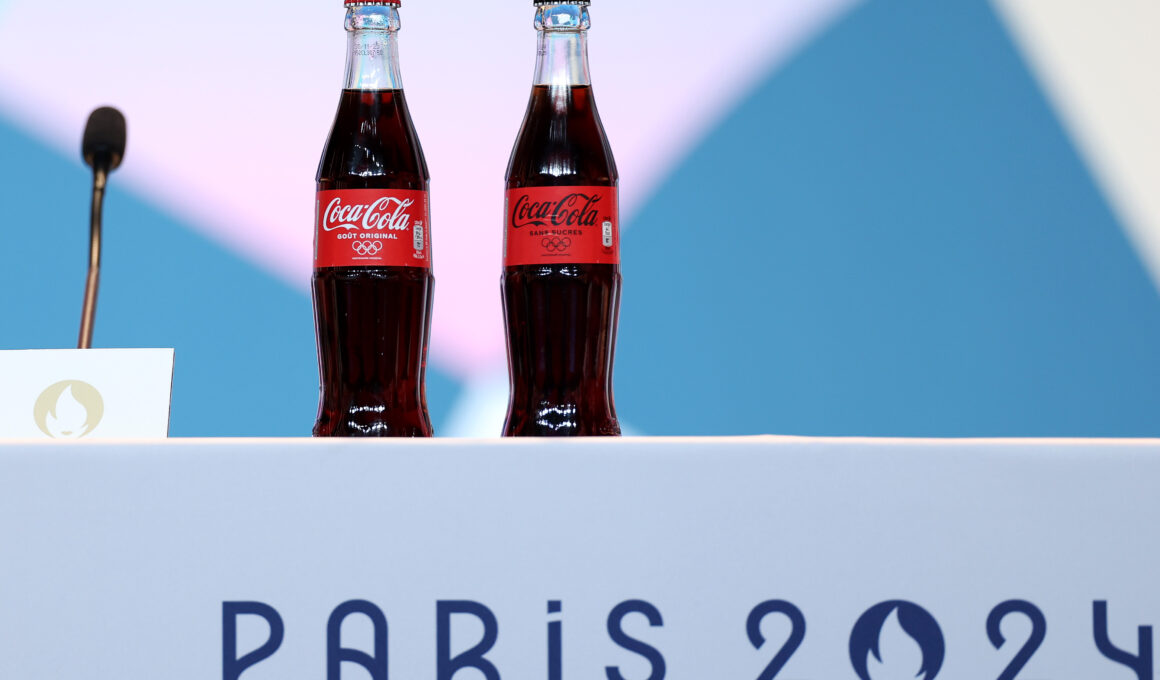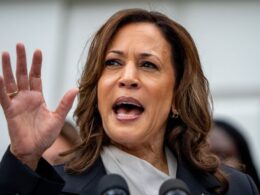An international public health organization has urged the Olympics to stop associating with sugary drinks like Coca-Cola.
The health group Vital Strategies has advised the International Olympic Committee (IOC) to “cut ties” with Coca-Cola, according to a new editorial in the journal BMJ Global Health.
This stems from the fact that drinks like Coca-Cola are high in sugar, and therefore, athletes are endorsing unhealthy products. Coca-Cola is also able to gain “entry to elite spaces occupied by political and corporate leadership and the occasion to exert their influence,” the Vital Strategies researchers wrote in the paper.
“It’s time for the International Olympic Committee (IOC) to cut ties with Coca-Cola in the interest of athletes, spectators and the planet,” they said.
Newsweek reached out to the IOC and Coca-Cola for comment via email.
Coca-Cola has sponsored the Olympics for nearly 100 years, as well as many other sporting events.
“High profile sporting event sponsorship is usually a highly effective marketing strategy. In 2022, The Coca-Cola Company had 233 active sponsorship agreements worldwide across 21 sports. In fact, in 2023, Coca-Cola had the most sports sponsorship of any other brand,” Vital Strategies said in the paper.
The authors noted that Coca-Cola, along with other sponsors, prominently displayed its branding throughout the stadiums and arenas during the Paris Olympics, suggesting an implicit endorsement of its products by over 10,000 athletes, despite them having no control over which companies’ logos are featured during the events.
The Olympic Games are globally one of the most watched television events, amplifying the company’s reach and influence.
The authors argue that the promotion of sugary drinks through high-profile sports events like the Olympics sends a mixed message about health and wellness.
“There’s no question that sugary drinks offer little or no nutritional value. They are also a key driver of nutrition-related diseases worldwide, including obesity, type 2 diabetes (T2D), high blood pressure, and heart disease,” the authors wrote. “Moreover, they contribute to undernutrition when consumed instead of foods containing essential nutrients. In the interest of health for all, promoting unhealthy sugary drinks clearly has no place in sport.”
The paper criticizes the IOC for continuing to partner with sugary drink brands despite the growing global concern over obesity and diseases linked to sugar consumption. It states that if the IOC cuts ties with Coca-Cola, it could have an impact on its influence worldwide.
The authors highlight the case of soccer star Cristiano Ronaldo, who publicly rejected Coca-Cola at a press conference, resulting in a significant market value loss for the company—reportedly $4 billion.
They conclude by calling for a reevaluation of such sponsorships and suggesting that sports organizations should prioritize health-promoting sponsors instead.
“By continuing its association with Coca-Cola, the Olympic movement risks being complicit in intensifying a global epidemic of poor nutrition, environmental degradation, and climate change,” the authors wrote. “By severing ties with Coca-Cola, the IOC can send a powerful message that the Olympics stand for integrity, health and sustainability.”
References
Cotter T, Mullin S. The Olympic game’s up: it’s time for the IOC to stop promoting sugary drinks. BMJ Glob Health. Published Online First 6 August 2024. doi:10.1136/bmjgh-2024-016586
Do you have a tip on a science story that Newsweek should be covering? Do you have a question about Coca-Cola? Let us know via science@newsweek.com.








